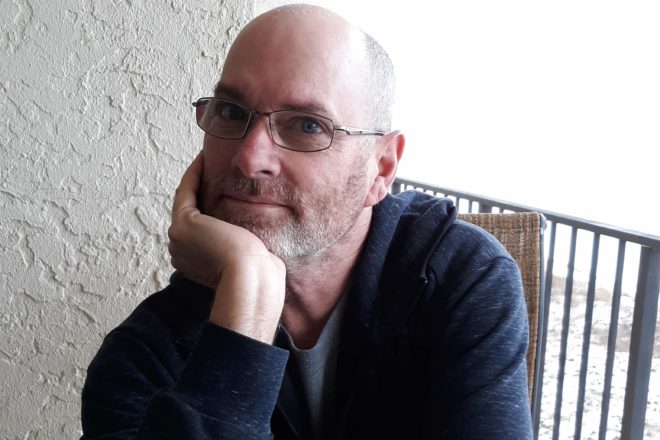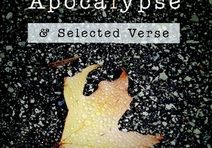Peninsula Poetry: Mike Orlock
- Share
- Tweet
- Pin
- Share

Mike Orlock is a retired high school teacher and coach who, with his wife, Liz, moved to Sturgeon Bay in 2008. He enjoys travel, reading, writing, films and spending time with his two children and five grandchildren. From 1989 until 2001, he wrote film reviews for the Reporter-Progress newspapers in suburban Chicago and was a contributing member of the Chicago Film Critics Association.
Orlock has twice been honored with Illinois Arts Council Awards for his short fiction. In 2014, he won the Wisconsin Writers Association’s Jade Ring Award in the Free Verse category, and in 2016, he earned the Wisconsin Fellowship of Poets’ Muse Prize. He has released five books of poetry and served as Door County’s poet laureate from 2021 until 2023.
Orlock currently writes the Mike at the Movies column for the Peninsula Pulse.
What’s your writing routine?
I wish I had a routine, but I’m not that disciplined. I write when I get an idea. It might percolate for a day or two as I piece things together in my mind. I tinker a lot with what I’ve written, too, coming back to revise and edit.
What do most poorly written poems have in common?
This is very subjective, since more people in this world write poems than read them, and some who write them don’t expect them to be read at all. I don’t think I’d ever tell somebody that his or her poem is “poorly written” if they invited me to read it, but I might offer suggestions for improving it based on my reaction to the piece. Sometimes a poem might fail to connect because it just isn’t ready to be read.
What do most well-written poems have in common?
I like poems that surprise me in some way, that catch me off guard with an unusual combination of words or sly use of metaphor, simile or rhythm. These poems can be written in any number of forms, but the writer is showing me something in a way that is unique and distinctive.
Many of the writers whom I have encountered in this county have caught me off guard with their work. You can find them in the pages of the Pulse; at the Unitarian Universalist Fellowship in Ephraim; at Write On, Door County; or in our local bookstores. The quality of work by poets in this community continues to amaze me.
Is it important to understand the meaning of the poem or for the reader to be able to “solve” it?
I like poems that are accessible in the sense that they invite the reader in rather than lock them out, as if understanding is meant only for an exclusive audience. This kind of elitist poetry is why some readers don’t bother with poetry at all. That said, I’ve enjoyed some of these kinds of poems myself on occasion, but not as a rule. If a poem expects me to solve it like a Rubik’s Cube, I’ll probably stop reading and go on to something else.
What book are you reading right now?
I tend to read several books at the same time. I just finished reading Quentin Tarantino’s Cinema Speculation, in which he discusses the movies that he fell in love with as a teenager that made him want to make movies himself. Concurrently, I’m reading Romantic Comedy, the new novel by Curtis Sittenfeld; and The Blue Bar by Damyanti Biswas.
Peninsula Poetry is a monthly column curated by the Door County Poets Collective, a 12-member working group that was formed to publish Soundings: Door County in Poetry in 2015 and continues to meet.
Ode to the Mosquito O, little fly whose slight, vampirish sting can cause the end of life with just one bite; you are the master in each dank domain you thrive and hide yourself in open sight. No woods or jungle, fields or fetid plain is free of your pernicious influence; you swarm in numbers beyond imagining and revel in your deadly pestilence. There is no living thing you cannot kill, and mortal man knows well to fear your drone; you leave your mark in welts that itch and swell, and though your life is short, the strife is long. O, doyenne of disease, mistress of floods — what made you mock belief in loving gods.
Under a Sturgeon Moon August nights can be sweltering affairs. Summer heat this time of year can stew, stagnant and stale, dank as the vegetables grown ripe too early in gardens that once seemed lively and lush, now listless and lank in the sultry air. The month has the feel of compromise and yield, as we mark time in a steady march to the inevitable surrender of fall. But that moon! Bright as a bauble dangling from a necklace of stars, it hangs overhead like a trophy sturgeon in the cool depths of sky, awaiting its waning in glorious gold, igniting dreams once more of life treasured, of bounty restored.




